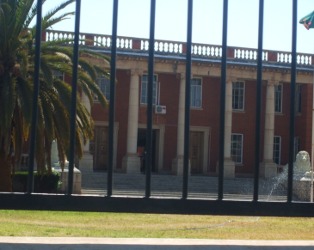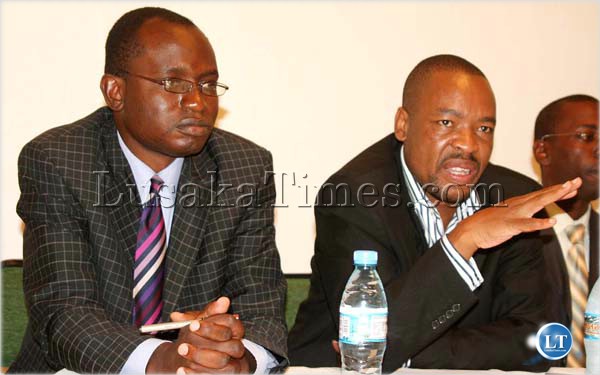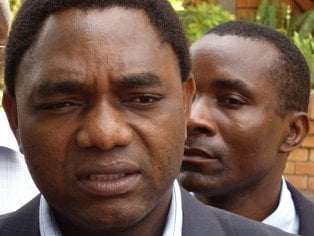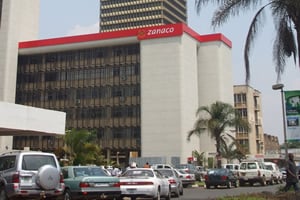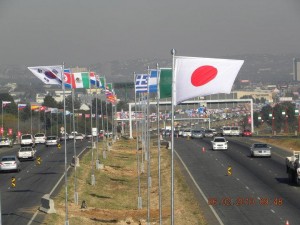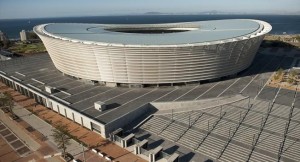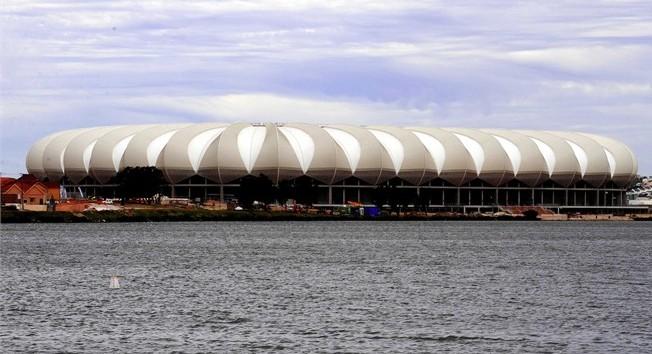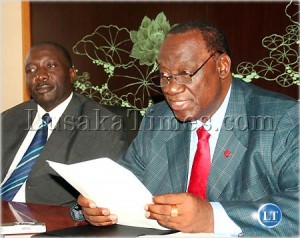LUSAKA High Court Judge-in-Charge Philip Musonda has ordered the arrest of businessman Aristogerasimos Vangelatos for disregarding a court order that required him to attend contempt proceedings.
Mr Justice Musonda issued the bench warrant after Vangelatos failed to attend contempt proceedings on two occasions.
The judge cited Vangelatos for summary contempt after he scandalised the court by alleging that Mr Justice Musonda, Judge Nigel Mutuna and lawyer Eric Silwamba have conspired to inflict injustice on him.
He made the allegations when he went to see Mr Justice Musonda in chambers, after which the court ordered him to go and collect his lawyer Rodger Chongwe whom he alleged had sent him to make the allegations.
[pullquote]“You are therefore commanded in the President’s name to arrest the said Aristogerasimos Vangelatos forthwith and lodge him in prison.”-Warrant Except to Greenwell Ng’uni [/pullquote]
Vangelatos went to Mr Justice Musonda’s chambers on June 14, 2010 and after making the allegations around 12:30 hours, the judge ordered him to go and collect Dr Chongwe.
He promised to go back to Mr Justice Musonda with Dr Chongwe around 14:00 hours the same day but the duo never turned up for summary trial until the court summoned him.
Later Mr Justice Musonda set July 2, 2010 as date of hearing summons for contempt of court but Vangelatos again failed to show up.
“This continuous disregard of court orders can’t be condoned. A bench warrant for his arrest is hereby issued,” Mr Justice Musonda said.
His warrant addressed to Lusaka Division Commanding Officer Greenwell Ng’uni reads: “By an order of this court dated 2nd July 2010 it was ordered that Aristogerasimos Vangelatos of flat number 5 Acropolis Flats Chila Road Kabulonga, be committed to prison for contempt of this court.
“You are therefore commanded in the President’s name to arrest the said Aristogerasimos Vangelatos forthwith and lodge him in prison.”
When contacted, Lusaka Division commanding officer Greenwell Ng’uni said he does not know anything about the bench warrant against Vangelatos.
“I was out in Solwezi when it was issued. Maybe other officers attended to it,” Mr Ng’uni said.
Particulars of the summary contempt are that Vangelatos accused Mr Justice Musonda, Mr Justice Mutuna and Mr Silwamba of having conspired to decide cases against him.
He went on to state that Mr Justice Mutuna had decided his case against a Supreme Court judgment.
Vangelatos added that he had been to State House and to Chief Justice Ernest Sakala to report the alleged conspiracy.
When asked as to who advised him to make the allegations, he said it was Dr Chongwe.
Mr Justice Musonda said Vangelatos’ allegations were false, malicious and intended to undermine the court’s integrity.
He said by unleashing the malicious and twisted smear, Vangelatos intended to intimidate the court before hearing of his case
Vangelatos has over the years been embroiled in incessant legal battles with his brother Demetre over management and ownership of Dar Farms International Transport Company, King Quality Meat Products, and Metro Investments.


